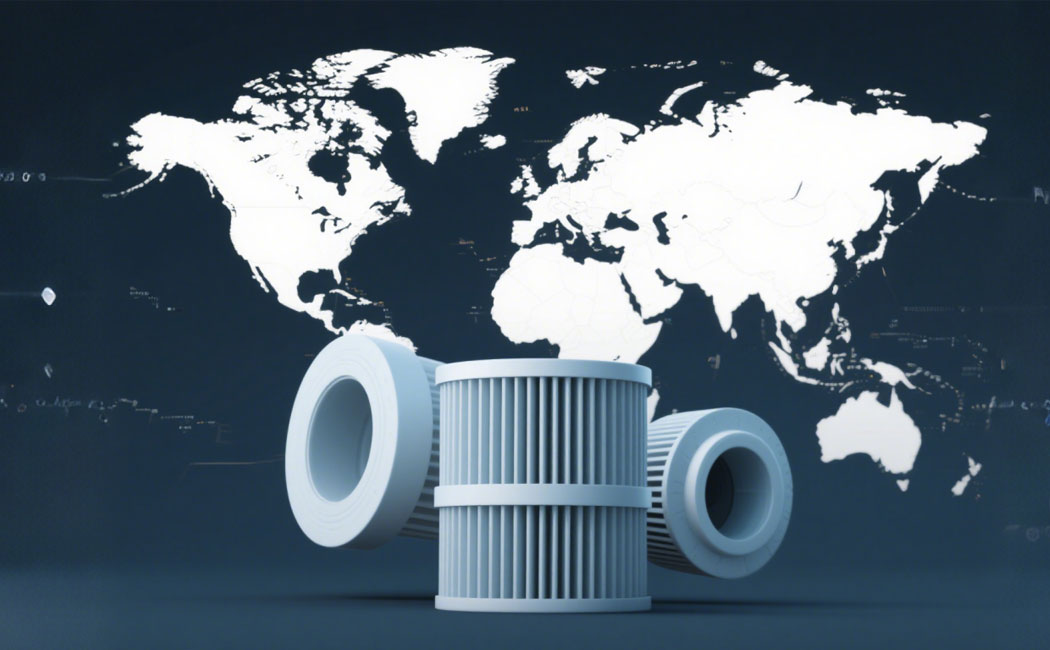Emerging Trends Shaping the Future of the Filtration Equipment Industry (2023-2030)
The global filtration equipment industry is undergoing rapid transformation, driven by evolving environmental regulations, technological advancements, and growing demand across sectors like manufacturing, healthcare, and water treatment. As a leader in providing integrated filtration solutions—from production machinery and materials (stainless steel mesh, epoxy screens, filter papers) to specialized adhesives and accessories—we analyze the key trends redefining this critical sector.
1. Sustainability and Regulatory Compliance Drive Innovation
Stringent environmental policies, such as the EU’s Industrial Emissions Directive and EPA standards in the U.S., are pushing industries to adopt advanced filtration systems. Companies now prioritize equipment that minimizes energy consumption, reduces waste, and captures ultrafine particulates. For instance, demand for multi-stage filtration systems capable of handling hazardous emissions in chemical processing has surged by 18% YoY (Grand View Research, 2023). Manufacturers investing in eco-friendly materials, such as recyclable stainless steel mesh or biodegradable filter media, are gaining a competitive edge.
2. Smart Filtration Systems and Industry 4.0 Integration
Automation and IoT-enabled filtration equipment are revolutionizing operational efficiency. Sensors embedded in industrial filters monitor pressure drops, contamination levels, and filter lifespan in real time, enabling predictive maintenance. A recent McKinsey report highlights that smart filtration systems can reduce downtime by up to 30% in oil and gas operations. Additionally, AI-driven analytics are optimizing filter design for sector-specific challenges, such as high-viscosity fluid filtration in food processing.
3. Rising Demand for Water and Wastewater Treatment Solutions
Water scarcity concerns and stricter wastewater discharge norms are accelerating investments in advanced filtration technologies. Membrane-based systems (e.g., reverse osmosis, ultrafiltration) now account for 42% of the municipal water treatment market (Global Water Intelligence, 2023). Emerging economies in Asia and Africa are adopting modular filtration units for decentralized water purification, creating opportunities for suppliers offering scalable, corrosion-resistant equipment.
4. Material Innovation Enhances Performance
Breakthroughs in filtration materials are extending equipment longevity and efficiency. Hybrid mesh designs combining stainless steel with polymer coatings improve chemical resistance, while nanofiber-based filter media achieve 99.99% efficiency in capturing sub-micron particles. The pharmaceutical sector, in particular, is adopting epoxy-coated screens for sterile processing, driven by FDA compliance requirements.
5. Customization and Modular Designs Gain Traction
One-size-fits-all solutions are fading as industries demand tailored filtration systems. Modular equipment that allows easy upgrades—such as interchangeable filter cartridges or adjustable mesh densities—is thriving. For example, automotive manufacturers increasingly request compact, high-flow filters compatible with electric vehicle battery cooling systems.
Our Commitment to Advancing Filtration Technology
We stay ahead of these trends by integrating R&D insights into our product ecosystem. Our vertically integrated capabilities—from precision laser-cut stainless steel meshes to IoT-ready filtration assemblies—ensure clients receive solutions that align with global standards. Whether it’s a food plant requiring FDA-compliant filter paper or a refinery needing explosion-proof housing, our engineering team delivers reliability and compliance.
Looking Ahead
The filtration equipment market is projected to grow at a CAGR of 6.8% through 2030 (MarketWatch, 2023), fueled by industrialization and sustainability mandates. Businesses that embrace adaptive, energy-efficient technologies will lead this transformation.
Share:
Categories
- blog(7)






